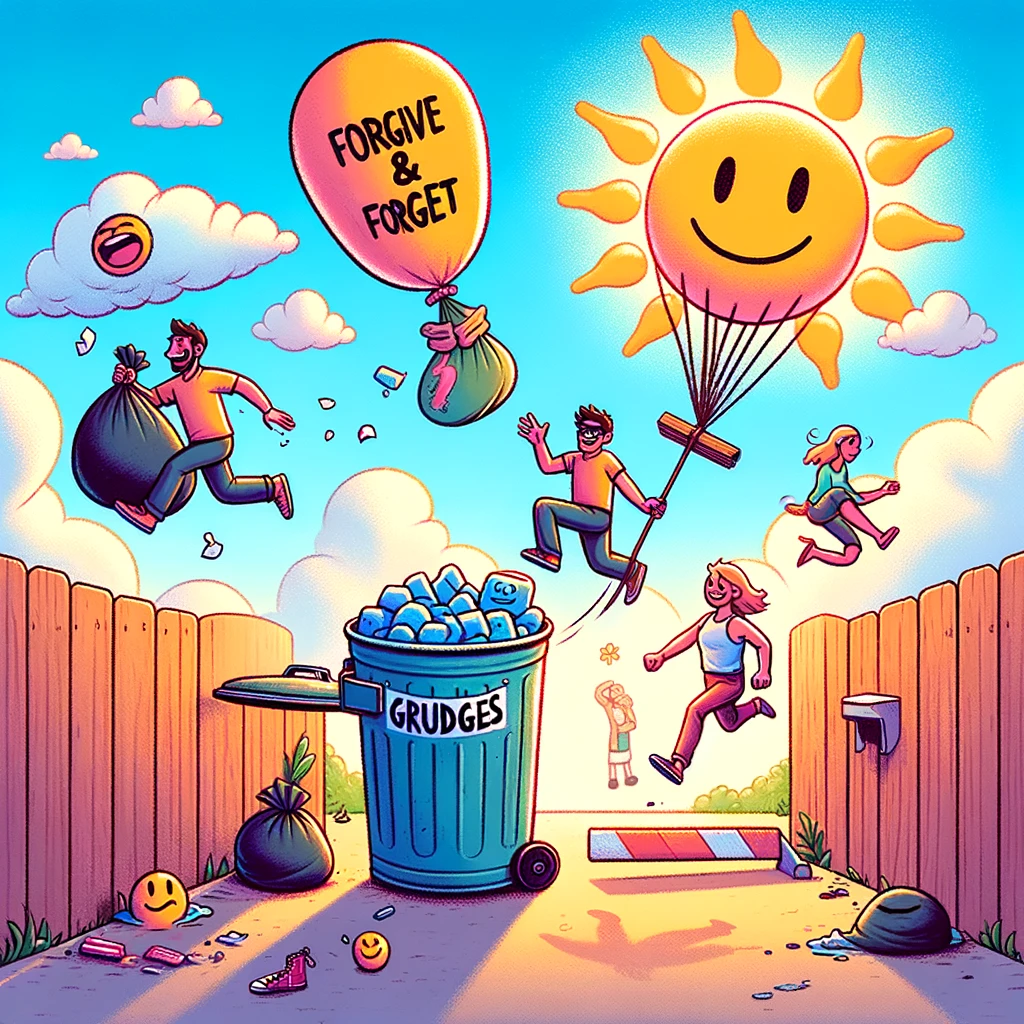In the grand tapestry of life, the mantra “forgive and forget” often gets tossed around like a hot potato nobody wants to hold. The idea, as soothing as a cup of chamomile tea, suggests that by forgiving and forgetting, we can magically erase all the hurt and stride into the sunset, unburdened and free. But is it truly as simple as hitting the delete button on your computer? Or is it more like trying to forget the lyrics of that annoying song that played on a loop during your last road trip? Let’s dive in, shall we?
First off, the concept of forgiving and forgetting sounds fantastic on paper—a bit like dieting or saving money. In theory, it’s a no-brainer. In practice, it’s akin to trying to ignore a chocolate cake while on a diet or saving money during a Steam sale. The heart wants what it wants, and often, it wants to hold a grudge tighter than a koala clings to a tree.
Forgiving and forgetting isn’t just about valuing the relationship more than the misdoings; it’s about embarking on a quest for inner peace in a world where peace is harder to find than a parking spot on a busy Saturday. It’s not about being a “loser” or compromising; it’s more about choosing your battles. Do you really want to spend your energy holding onto grievances, or would you rather use it to binge-watch your favorite series? Tough choice, I know.
Let’s be real for a moment. Cutting ties and moving on sounds great, doesn’t it? It’s like deciding to stop following a TV show that’s gone downhill. You know it’s not adding value to your life anymore, but oh, the memories of the good old days make it hard. However, reminding the opposite party of their misdoings unless they bend down and apologize? That’s like keeping a scorecard in a relationship—useful in cricket, not so much in life. The reality is, insisting on an apology can sometimes feel like waiting for a text back from someone you know is ghosting you.
The truth is, letting go is indeed for the strong-hearted. It’s for those who’ve realized that life is too short to spend it in the bitterness aisle of the supermarket of emotions. It’s about understanding that most people don’t change—not because they’re all hopeless but because change is hard, and old habits die harder than that villain in your favorite action movie.
Here’s the kicker: moving on without forgiveness or forgetting is like leaving a USB plugged in with all your data on it. Sure, you’re moving forward, but you’re still tethered to the past. The intense pain and suffering that follow are the real deal, threatening not just your mental, but your financial and physical health too. Imagine the horror of realizing that holding onto grudges is more expensive than your Netflix subscription!
In the end, everyone has to move on, but how you choose to do so is crucial. It’s about finding the fine line between not letting yourself be a doormat and not turning into a walking, talking grudge holder. Remember, “Once an asshole, always an asshole” might be an old saying, but people can surprise you—sometimes for the better.
To wrap it up, whether you choose to forgive and forget or not is your prerogative. Just remember, life is too short to be anything but happy. So, laugh a little, love a lot, and maybe, just maybe, let that grudge go. After all, you wouldn’t want to miss out on the joys of life because you were too busy being angry at someone who probably forgot to put the toilet seat down. Let’s raise a glass to moving on, with or without forgiveness, but always with a little humor and a lot of strength. Cheers!




